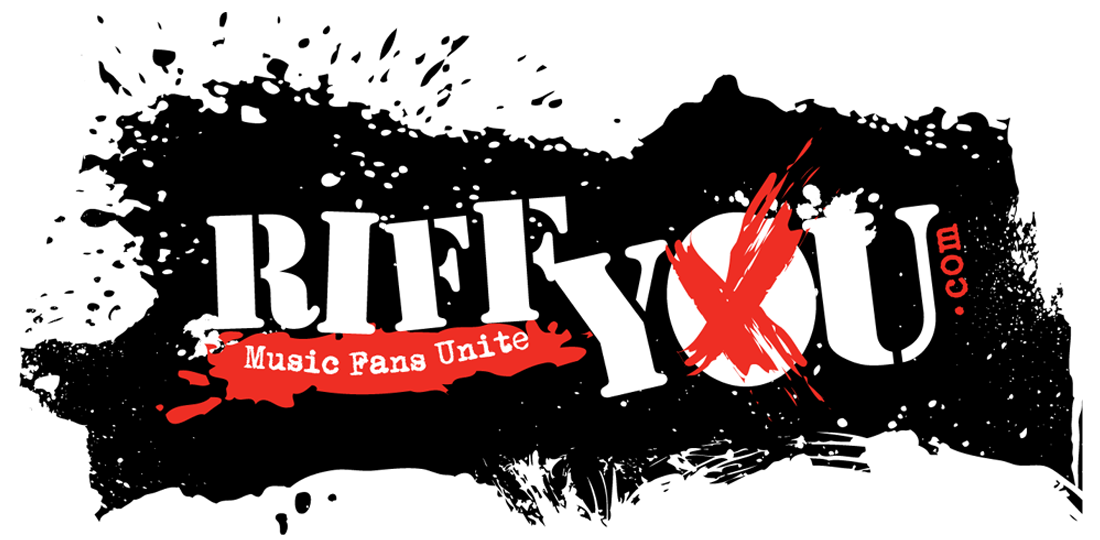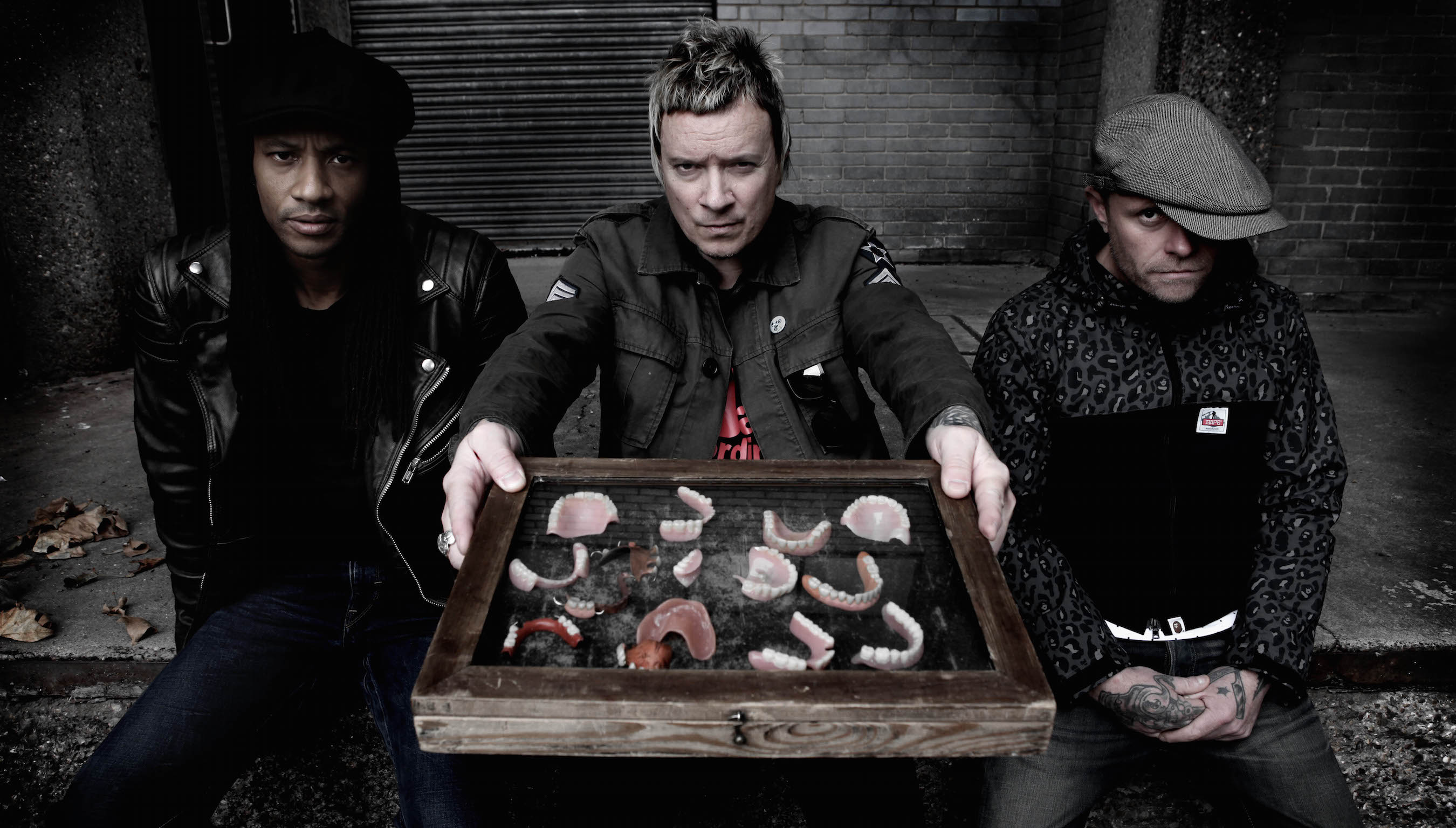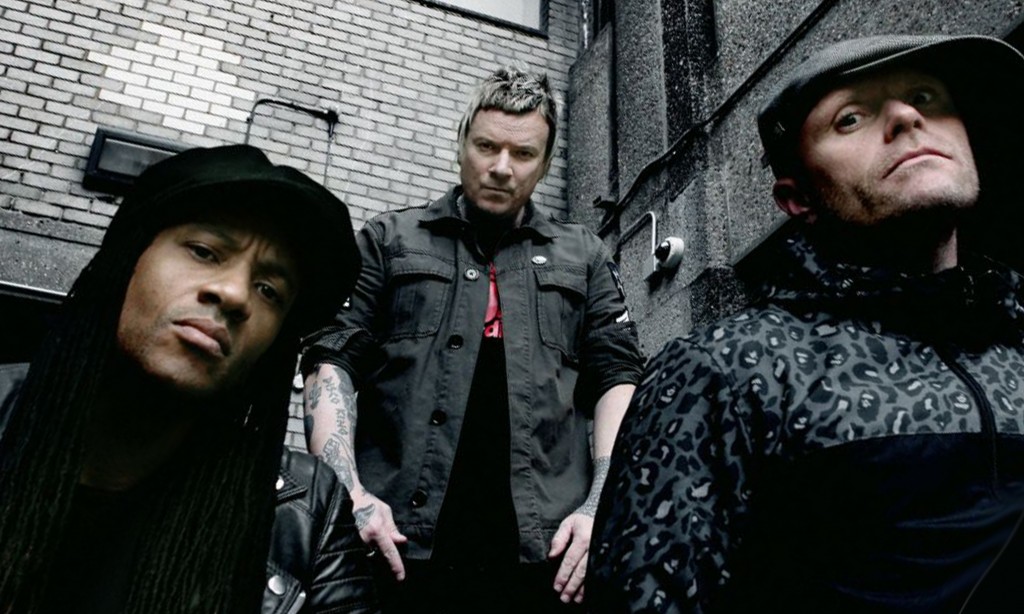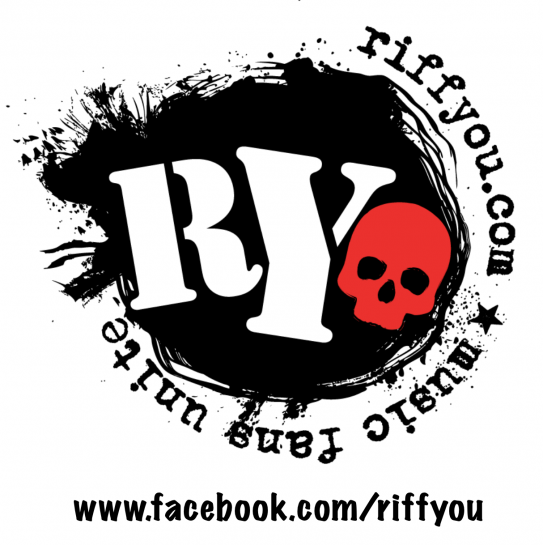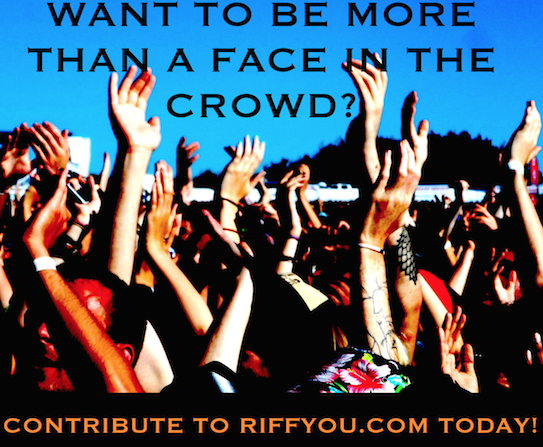Q&A: The Prodigy Get Violent in the Face of EDM
Over the course of 25 years, The Prodigy has been the edgy, uncompromising child not willing to follow its annoying, attention-seeking, electronic dance music (EDM) stepsiblings around. Yes, the group – Liam Howlett, Keith Flint and Maxim – have sold over 25 million albums and received mainstream attention for tracks like “Firestarter,” “Breathe” and “Smack My Bitch Up,” but you can never say that The Prodigy watered itself down to gain added appeal.
On 2015’s The Day is My Enemy, The Prodigy have rebelled against a bloated, radio-friendly, pop-directed EDM scene with a thunderous, violent response that feels more like a firm slap to the mouth, as opposed to dancing in a field while wearing neon shorts and flip flops.
Ahead of The Prodigy’s Sunday headlining slot at Riot Fest Toronto, Riffyou.com spoke with the trio’s Liam Howlett about musical aggression, his displeasure with EDM, staying true to a vision, avoiding new technology and why The Day is My Enemy smoulders with intensity.
RY: Congratulations on The Day is My Enemy! It’s a beast of an album that must be incredible to perform live. When making an album, how much thought do you put into how it’ll translate in concert?
Liam: “Cheers. This album was purely created with taking it live-in-mind because that’s the only thing that’s real to us. It’s the one place we know for sure the music will end up, so nothing else was thought about like radio, etc. It helps to visualise the tunes when writing them.”
RY: You guys have said that the aggression in the sound of The Day is My Enemy came naturally. At what point during the creative process did you realize you were headed in that direction? What was your first reaction?
Liam: “There was a lot of frustration within the band, firstly, which drove the sound. We have always been about reacting to what is happening around us and we felt the need to make something that had a bite, because electronic music seemed to have softened off recently – it has seeped into pop music, fucking adverts, etc. We had to make it clear to people we aren’t part of that electronic formulaic shit that people hear. The only way to do that is by writing something different to what is out there, sonically. Saying that, though, we don’t need a reason but it has to feel real. Once we had written the ‘Nasty’ demo, I knew we had started.”
RY: When The Prodigy gets deep into the creative process on any album, what type of conversations between band mates need to happen to ensure that the right sound and message is coming across in the music?
Liam: “We just need to be together and vibing if they are lyrical tunes. On this album, we jammed a lot of stuff down and had the computer on record. We wrote at least three or four songs that way. The guys then leave it to me to put it together and carve the sound out, but we all say we never want or feel the need to create a new sound or style. We have our own sound already and I always think bands that [also] do this show that they aren’t confident in what they are.
“There were lots of ideas we tried on this record, lyrically, that just weren’t right for us and we all agreed on this when listening back. I think we just all know when a tune feels right.”
RY: When writing a track, what do you recognize first: a song that’s on the verge of being incredible, or a song that’s too terrible to move forward with?
Liam: “I have to get that ‘feelin’ – that’s what drives it forward. Sometimes I might come up with a lyric first, like ‘Take me to the hospital.’ I knew that the music would have to be sick to rise up to that title and lyric, so I had to keep going with it until it had the right amount off illness!”
RY: What does a song need to have to make it onto a Prodigy album? How has the criteria changed over the years?
Liam: “A certain danger, tension, who knows? It’s different every time I guess – we try not to repeat ourselves. I think on this record we imagined it like a live set so where a tune like ‘Invisible Sun’ wouldn’t feel like a typical Prodigy tune, it feels perfect when it sits on the album. We haven’t played that tune live yet, but I might remix it and try it at some point.”
RY: Admittedly, I am more of a rock music fan than an electronic music fan. But, The Day is My Enemy hit me with the same type of force as a great rock album would. How much, if any, influence does rock music have on what The Prodigy does either musically, or in terms of the live show?
Liam: “It’s in the attack. Yeah, we are an electronic band, but any similarities we have to electronic dance music kind of ends there. I’ve always been into bands like Public Enemy, Rage Against the Machine and The Beastie Boys – that’s my background. There’s shit rock music out there just like there is shit
electronic music, so I don’t get hung up on genres. I like my tunes to bite and attack and to catch you off guard. The tunes just have to have fire and rock, but that’s got nothing to do with if they have guitars in them or not.”
RY: As you noted earlier, Electronic music has travelled into some pretty pop-friendly galaxies of late. How much is The Day is My Enemy a response to the watered down participants of the electronic community?
Liam: “Electronic music/EDM, whatever you want to call it, has been hijacked by pop music. The big producers are responsible really for taking it there – they know who they are and the one thing I have that they don’t is integrity. It’s a money thing to them. When you start to hear [that music] on TV adverts, that’s when you know it’s dead, so hopefully it will kill itself. We don’t care because we have always been the outsiders. We didn’t try to jump into the huge American EDM movement because we know who we are and what our sound is.”
RY: Some artists get shockingly complacent over time, especially if they begin to reach the level of success a group like The Prodigy has. From an artistic level, what motivates you to continually take chances musically?
Liam: “Some do, but they don’t survive because they take their eye off the ball. You have to stay hungry for it. For us it’s not about putting albums out every two years – you got to do things for the right reason and stay true. I think people that are into our band know what it stands for and our ethics. The motivations have to be there and real, otherwise, what is the fucking point? With this record, we wanted to make something more uncompromising, so that in itself is a chance we wanted to take.”
RY: How much of a role does the constant availability of new technology impact how The Prodigy makes music?
Liam: “I try and rebel against it to be honest, with regards to the studio equipment. It’s important for production techniques to [be focused on] for the actual sound. But, so many times when I hear dance music, I hear the same old sounds from certain computer synths used again and again.
“I’ve got the same few keyboards I use in the studio, which I try to keep as simple as possible – I just find new ways to record them. New technology has made electronic music easy to write for people, what with YouTube tutorials showing you how to create the same sounds as your favourite producer…what the fuck?! That breeds laziness and I can’t stand it.”
RY: Critics will always guess about how a band has evolved from its debut album, to its most recent one. Internally, how do you view the musical growth of The Prodigy from Experience to The Day is My Enemy?
Liam: “More violent!”
-Adam Grant
Please be sure to follow us on Twitter @riffyou and at Facebook.com/riffyou.
